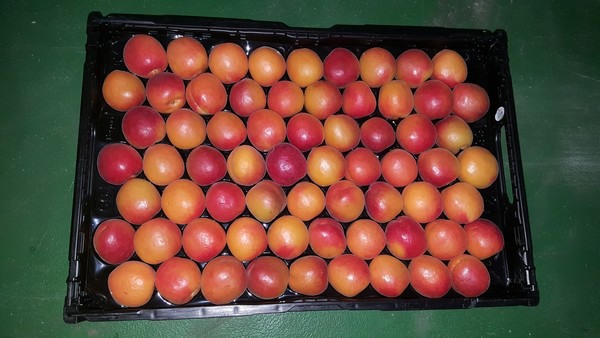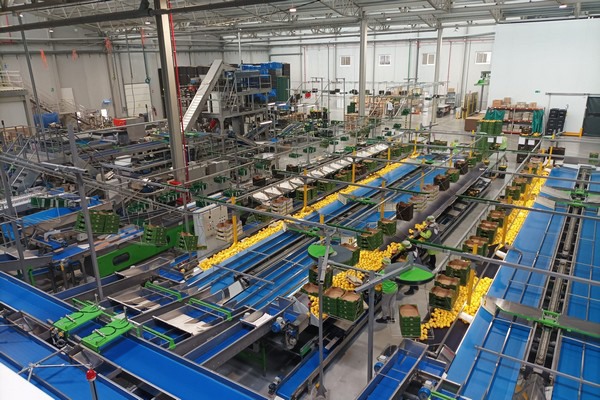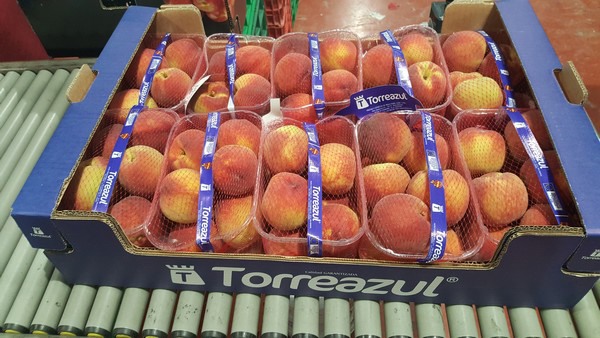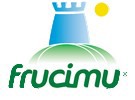The Murcia-based cooperative Frutas y Cítricos de Mula, Frucimu, expects the organic apricot campaign to start in a couple of weeks. "The harvest will start with a delay of about 10 days compared to last year, around week 17/18, because this year has been warmer and the cold has been more seasonal."
"We are in the northwest of the Region of Murcia, in an enclave located between the Mula Valley and Sierra Espuña. In the northern part of the Region of Murcia, the cold was more severe and the extra-early varieties, which were in bloom at the time, were hit by it. Our situation is different. We will start strong with a normal extra-early harvest, but we will also see a considerable reduction of the late varieties, as the fruit setting was affected by the sudden arrival of heat following a 15-day cold period.

Frucimu works mainly with apricots in the organic stone fruit segment, but also with other fruits. "We complement the supply with peaches and flat peaches. In total, of the 28 hectares that our partners have in production, we estimate that we will obtain about 600 tons of organic apricots, about 250 tons of peaches and between 120 and 130 tons of organic flat peaches. This year, in order to meet an existing demand, we are also adding yellow peaches to our portfolio."
In 2021, Frucimu launched a dedicated facility for the reception and handling of organic produce that allowed them to substantially increase their capacity. "Whoever is not working efficiently nowadays is going to have problems, and the move to our new infrastructures has allowed us to have new processing lines and helped us improve in the search for that efficiency. Given the energy costs and the rising prices of phytosanitary products, if we were not able to remain profitable by working efficiency, we would have to consider abandoning stone fruit production, which for many years has been the greatest feature of this whole area," he said.

"If we need to export 90% of our organic production, we should consider whether we are losing control of the season"
In Spain, the acreage devoted to organic farming has been growing for years, although consumption has not increased at the same pace as the production itself. "In a recent Anecoop conference held at our facilities, a certainly shocking fact was revealed when conducting a comparison with other European countries: in Spain, only 10% of all organic production is intended for domestic consumption, while the rest is exported. In our case, we export 100% of the organic fruit we produce."
"In my opinion, it is possible that, in general, the development of varieties intended for the Spanish consumer has not been managed properly, and that the focus has been on profitability and on obtaining optimal products for export to retailers, to the detriment of the flavor and sweetness demanded by domestic consumers."
"In fact, if we need to export 90% of our organic production to the EU every campaign, we should consider whether we are losing control of the season and can be compared to a ship going adrift, carried away by the tide of retailers." This has not only happened with stone fruit; "with other products, such as tomatoes, we have seen something similar: varieties developed with a greater focus on guaranteeing marketing success than on seeking the pleasure of consumers. It is true that taking care of the harvesting, handling, shipping and reception requires some time that is detrimental to the fruit's shelf life, but it is also true that ripening is what determines the taste of the fruit and gives it its organoleptic properties," said Manuel.

"The sector as a whole: growers, warehouses and retailers, the three key links of the chain, need to carry out some self-analysis work. Growers must understand that there are varieties that are much more suited for Spanish consumption. Warehouse keepers must be more agile in their handling, and retailers must understand that stone fruit at an optimum ripening stage is a more volatile fruit. Above all, in order for all this to work and for the profitability of the food sector to be guaranteed, we must understand that we cannot only seek macro yields of non-native varieties that do not work in the domestic market, and we must find the formula to make sure our products are appealing to all markets, including the domestic one."
 For more information:
For more information:
Frucimu
Tel.: +34 968 66 08 50
info@frucimu.info
www.frucimu.info
